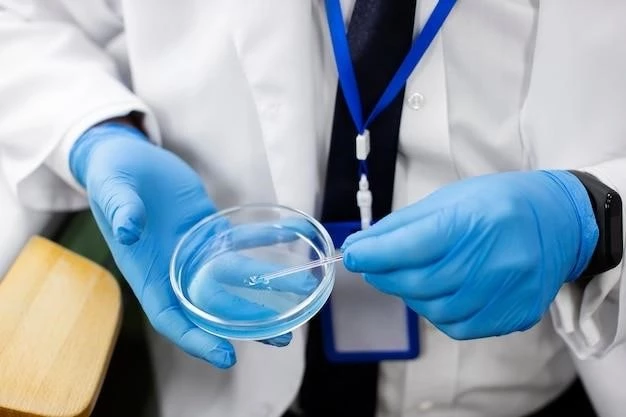Introduction
Thiopurine S-methyltransferase (TPMT) deficiency is a genetic condition affecting enzyme activity in processing thiopurine drugs, leading to potential drug toxicity and adverse effects. Understanding the implications of TPMT deficiency is crucial for personalized treatment.
Overview of Thiopurine S Methyltransferase Deficiency
Thiopurine S-methyltransferase deficiency is a genetic condition linked to reduced enzyme activity in metabolizing thiopurine drugs like azathioprine. This deficiency poses risks of adverse effects and bone marrow damage in affected individuals. Understanding the genetic basis and impact of TPMT deficiency is crucial for personalized treatment approaches.

Causes and Mechanism
The TPMT gene mutation leads to reduced activity of the thiopurine S-methyltransferase enzyme, affecting the metabolism of thiopurine drugs like azathioprine. Understanding the genetic basis of TPMT deficiency is crucial for managing drug processing and preventing adverse effects.
Genetic Basis of Thiopurine S Methyltransferase Deficiency
The TPMT gene mutation results in decreased activity of the thiopurine S-methyltransferase enzyme, impacting the breakdown of thiopurine drugs like azathioprine. This deficiency, primarily caused by genetic alterations affecting TPMT, elevates the risk of adverse drug reactions and bone marrow damage in individuals with compromised enzyme function. Understanding the genetic basis of TPMT deficiency is essential for tailoring treatment strategies and minimizing drug-related complications.
Role of TPMT Gene in Metabolism of Thiopurines
The TPMT gene encodes the thiopurine S-methyltransferase enzyme, vital for breaking down thiopurine drugs like azathioprine. Mutations in this gene can lead to reduced enzyme activity, causing challenges in metabolizing thiopurines and increasing the risk of adverse effects. Understanding the role of the TPMT gene in thiopurine metabolism is crucial for managing drug therapy and minimizing potential complications.
Symptoms and Risk Factors
In individuals with TPMT deficiency, reduced enzyme activity can lead to difficulties processing thiopurine drugs like azathioprine, increasing the risk of adverse effects and potential bone marrow damage. Understanding these risk factors is crucial for personalized treatment strategies.
Impact of Reduced Enzyme Activity on Drug Processing
Individuals with reduced TPMT enzyme activity may experience challenges in metabolizing thiopurine drugs like azathioprine, leading to an increased risk of adverse effects and potential bone marrow damage. Understanding the impact of decreased enzyme activity on drug processing is crucial for managing treatment plans and minimizing risks associated with TPMT deficiency.
Risk of Bone Marrow Damage in Patients
Individuals with thiopurine S-methyltransferase deficiency are at an elevated risk of experiencing bone marrow damage if they take thiopurine drugs like azathioprine. Understanding this risk is essential for managing treatment plans and ensuring the safety of patients with TPMT deficiency.
Diagnosis and Testing
Testing for Thiopurine S-methyltransferase deficiency is crucial to assess the enzyme activity responsible for metabolizing thiopurine drugs. Understanding the importance of diagnostic testing in identifying TPMT deficiency aids in optimizing treatment strategies and reducing the risk of adverse drug reactions.
Importance of Testing for Thiopurine S Methyltransferase Deficiency
Testing for Thiopurine S-methyltransferase deficiency is crucial for identifying individuals with reduced enzyme activity, helping to prevent drug toxicity and adverse reactions. Understanding the significance of diagnostic testing for TPMT deficiency aids in optimizing treatment approaches and improving patient outcomes.
Meta-Analysis of Diagnostic Test Accuracy
Thiopurine S-methyltransferase testing is crucial for averting drug toxicity. A meta-analysis of diagnostic test accuracy provides valuable insights into the precision and effectiveness of these tests in identifying individuals with TPMT deficiency. Understanding the reliability of diagnostic testing assists healthcare professionals in tailoring treatment strategies and ensuring patient safety.
Treatment and Management
Addressing Thiopurine S-methyltransferase deficiency involves considering alternative agents to avoid adverse drug reactions. Optimizing treatment with azathioprine and 6-mercaptopurine is essential in managing patients with TPMT deficiency effectively.
Alternative Agents for Patients with TPMT Deficiency
For individuals with TPMT deficiency, alternative agents may be considered to avoid adverse drug reactions related to thiopurine drugs. Identifying suitable alternative treatments is crucial in managing patients with TPMT deficiency effectively and ensuring optimal therapeutic outcomes.
Optimizing Treatment with Azathioprine and 6-Mercaptopurine
Optimizing treatment with azathioprine and 6-mercaptopurine is crucial in managing patients with TPMT deficiency effectively. Careful monitoring and dosage adjustments can help mitigate the risks associated with reduced enzyme activity, ensuring better treatment outcomes and improving the safety profile of thiopurine drugs.

Prevention and Prognosis
Understanding preventive measures like optimized drug dosages can avert toxic reactions in TPMT deficient patients. Evaluating the sensitivity and specificity of diagnostic tests aids in prognosis and personalized treatment.
Preventive Measures to Avert Drug Toxicity
Implementing preventive measures such as optimized drug dosages can help avoid toxic reactions in patients with TPMT deficiency. Promoting sustainable access to treatment and addressing barriers like medication shortages or high costs is crucial for ensuring effective management of TPMT deficiency and reducing adverse drug effects.
Sensitivity and Specificity of TPMT Phenotyping and Genotyping
Evaluating the sensitivity and specificity of TPMT phenotyping and genotyping aids in identifying individuals with reduced enzyme activity, allowing for personalized treatment plans to mitigate the risks associated with thiopurine drugs. Understanding the precision and accuracy of these diagnostic tests is essential for optimizing therapy and improving patient outcomes in TPMT deficiency cases.
